
Japonaiserie Bridge in the Rain (after Hiroshige) Vincent van Gogh Paintings Van gogh
Following van Gogh's death in 1890, Japanese artists and art-lovers read van Gogh's letters, which were translated into Japanese in 1915. They made pilgrimages to his grave in Auvers-sur-Oise.

Japonaiserie (Van Gogh) Alchetron, the free social encyclopedia
Van Gogh, an avid collector of Japanese art woodcut prints, had been inspired by Japanese woodcut masters, such as Katsushika Hokusai and Keisai Eisen. Endeavoring to master the formal characteristics of these Japanese prints, Van Gogh made use of the traditional academic method of copying. The painting shown here, after a work by Kesai Eisen.

Vincent van Gogh’s Collection of 500 Japanese Prints Available to Download FOR FREE artFido
Van Gogh and Japan. Japonisme is a concept used to describe the study of Japanese art and its influence on European artists. It was present in several currents, including art nouveau and post-impressionism. But this phenomenon is more closely related to Impressionism, as artists such as Claude Monet and Edgar Degas were inspired by the themes.
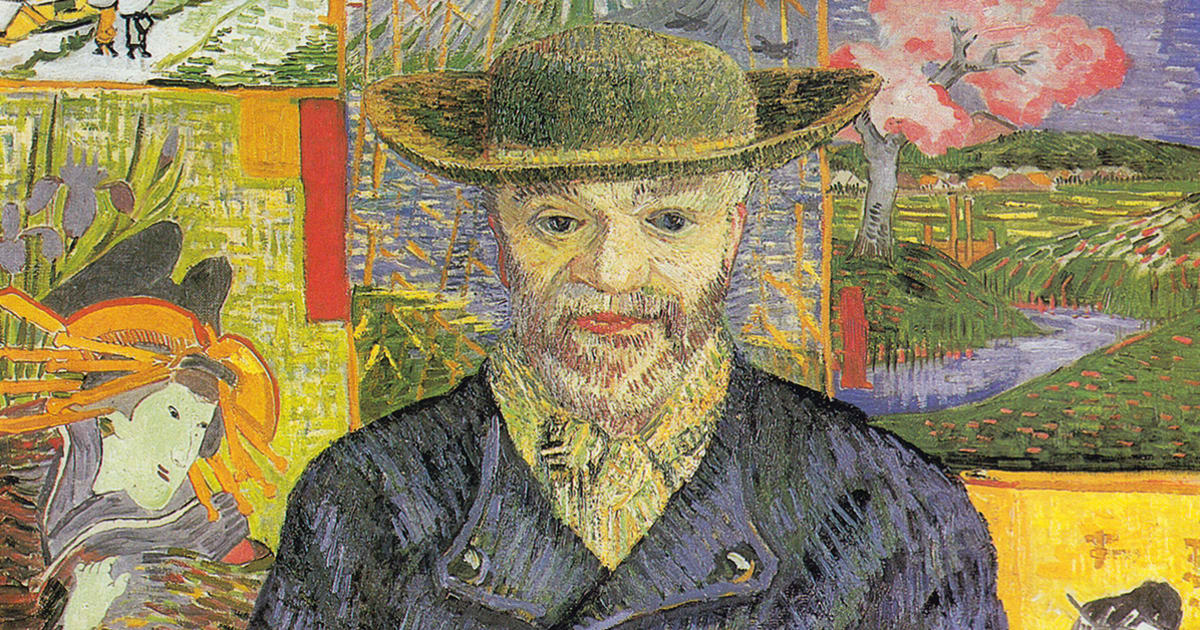
O amor de Vincent van Gogh pela arte do Japão Domestika
Van Gogh greatly admired Japanese woodcuts for their bright colours and distinctive compositions. He based this painting of a bridge in the rain on a print by the famous artist Utagawa Hiroshige. Van Gogh made the colours more intense than in the original, however. He painted this work on a standard size canvas.
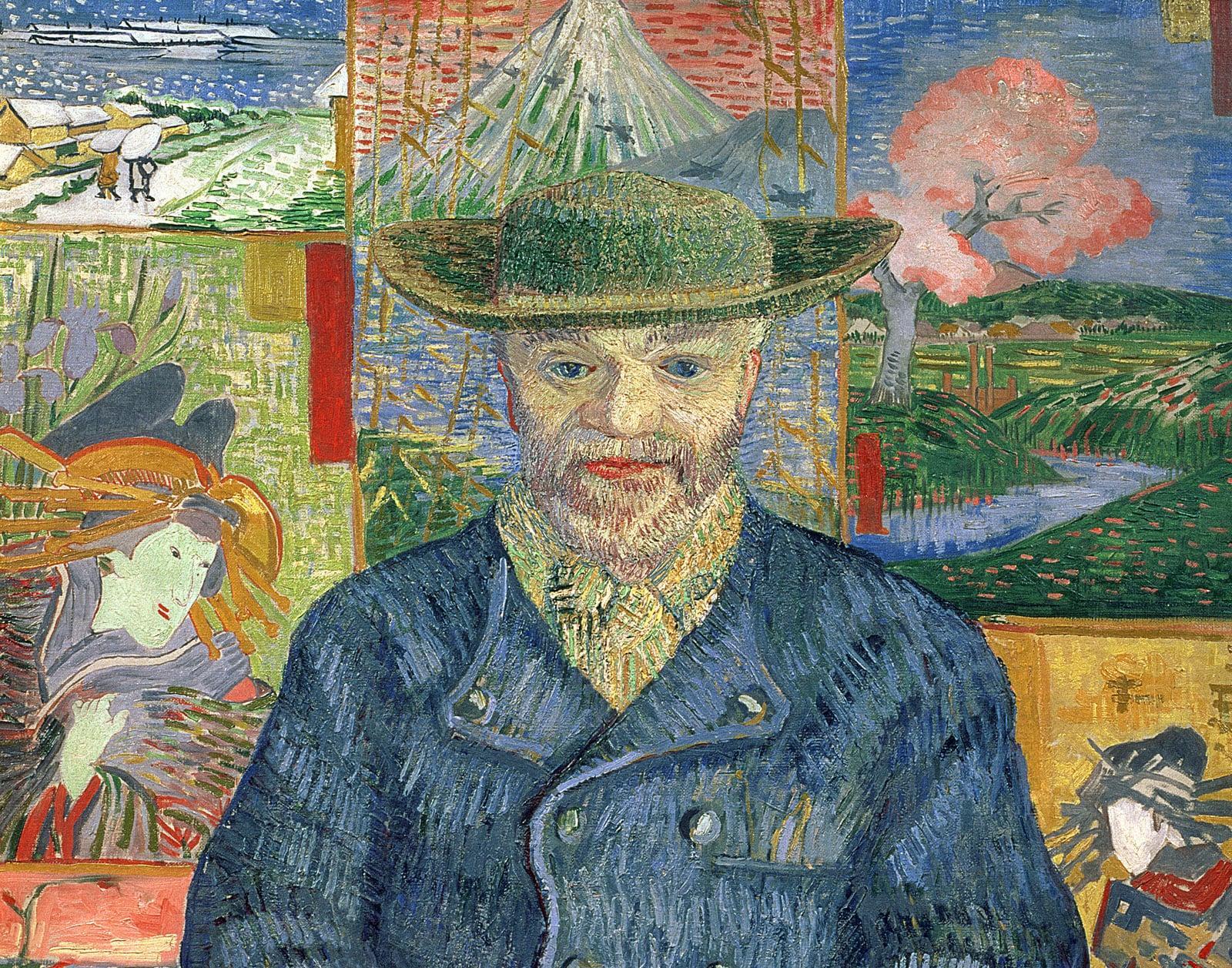
Van Gogh & Japan Broadway
In the Van Gogh Museum. Theo and later his widow, Jo van Gogh-Bonger, took good care of Van Gogh's Japanese prints, so that the majority of them eventually found their way into the Van Gogh Museum. You can view over 500 colourful works from his collection and admire them just as Van Gogh himself did. Explore the Japanese print collection.

Replica Flowering Plum Tree Van Gogh, Flowering Plum Tree, Hand Painted Vans, Art Japonais, Oil
Van Gogh was a great admirer of Japanese art. He wrote that it made him happy and cheerful. He made three paintings after Japanese prints from his own collection. This gave him a chance to explore the Japanese printmakers' style and use of colour. The first of these copies is based on Utagawa Hiroshige's Plum Garden in Kameido.Van Gogh accurately reproduced the composition but made the colours.

Wall Art The Courtesan Van Gogh Oil Painting Reproduction at in 2021 Van
Van Gogh was inspired by the aesthetics of Japanese art, creating Bridge in the Rain (After Hiroshige) in 1887 (Credit: Van Gogh Museum) Many past exhibitions have illuminated the impact of.
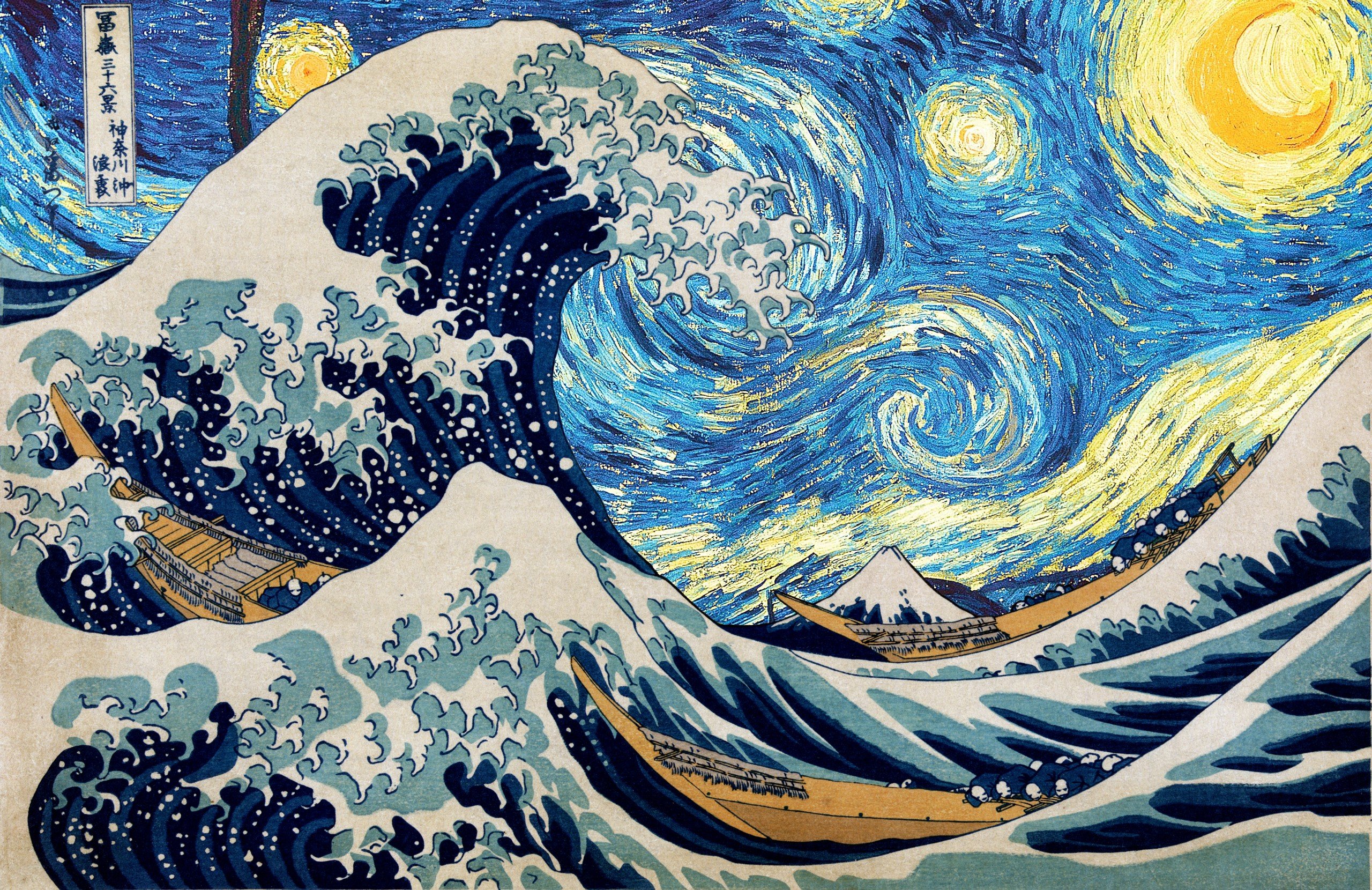
Vincent van Gogh, Hokusai, Starry night, The Great Wave off Kanagawa HD Wallpapers / Desktop and
Van Gogh even began even thinking of himself as a Japanese artist, Bakker claimed. Indeed, in one 1888 self-portrait he reshaped his eyes in order to give himself the appearance of a Japanese monk.

The Japanese Prints that Inspired Vincent van Gogh
Van Gogh was a collector of Japanese ukiyo-e woodblock prints, with many adorning his studio walls, offering constant inspiration. Courtesan (after Eisen) (1887) By Vincent van Gogh Influence On Composition: The composition of Van Gogh's paintings, such as "The Café Terrace at Night," reflects the balance and harmony in Japanese prints.

Japonaiserie (after Hiroshige). 1887. Vincent van Gogh 1853 1890 Vincent van gogh
Vincent van Gogh, "Butterflies and Poppies" (May-June 1889), oil on canvas, 35 cm x 25.5 cm. His drawings and paintings provide considerable evidence that van Gogh was also inspired by.

Van Gogh Vincent Japonaiserie Flowering Plum Orchard after Hiroshige Paris 1887 001518
Insights: Van Gogh & Japan. Van Gogh was a genuine and unconditional admirer of Japanese art. In the late 1887, he made three paintings in which he translated scenes from Japanese artists Hiroshige and Eisen. The love for Japanese art is particularly evident in Van Gogh's letters from Arles. In these, he explicitly frames his current work as.
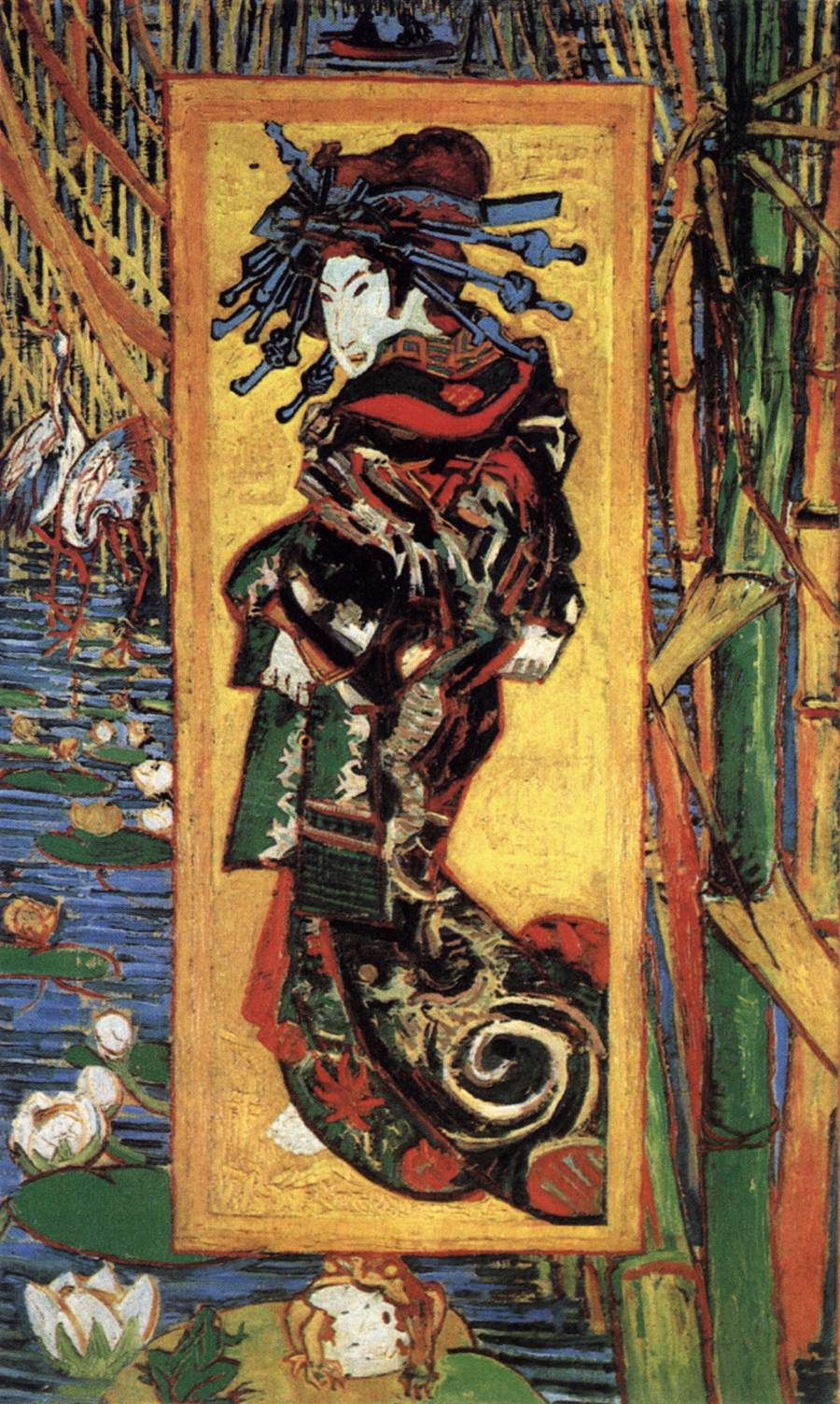
Vincent Van Gogh INFLUENCE of JAPANESE ART
Van Gogh admired the techniques of Japanese artists. [12] Characteristic features of ukiyo-e prints include their ordinary subject matter, the distinctive cropping of their compositions, bold and assertive outlines, absent or unusual perspective, flat regions of uniform colour, uniform lighting, absence of chiaroscuro , and their emphasis on decorative patterns.

How Vincent van Gogh Found Inspiration in Japanese Art Japanese Art Sotheby’s
Discover how Vincent van Gogh found inspiration from Japanese prints. Read the story. And we wouldn't be able to study Japanese art, it seems to me, without becoming much happier and more cheerful, and it makes us return to nature, despite our education and our work in a world of convention. Vincent to his brother Theo, 23 or 24 September 1888.

Van Gogh Never Visited Japan, but He Saw It Everywhere The New York Times
Van Gogh discovered Japanese art in 1886, when he was living in Paris. After centuries of isolation, Japan was now open to European traders. In Paris, and throughout Europe, Japan was all the rage.

How did Vincent van Gogh find inspiration from Japanese prints? Read the story Van gogh
Vincent van Gogh's collection of Japanese prints is the property of the Vincent van Gogh Foundation and is on permanent loan to the Van Gogh Museum collection. Due to their sensitivity to light, the prints rarely go on display, but the museum has included a wide selection in the blockbuster exhibition Van Gogh & Japan. Featuring more than 100.
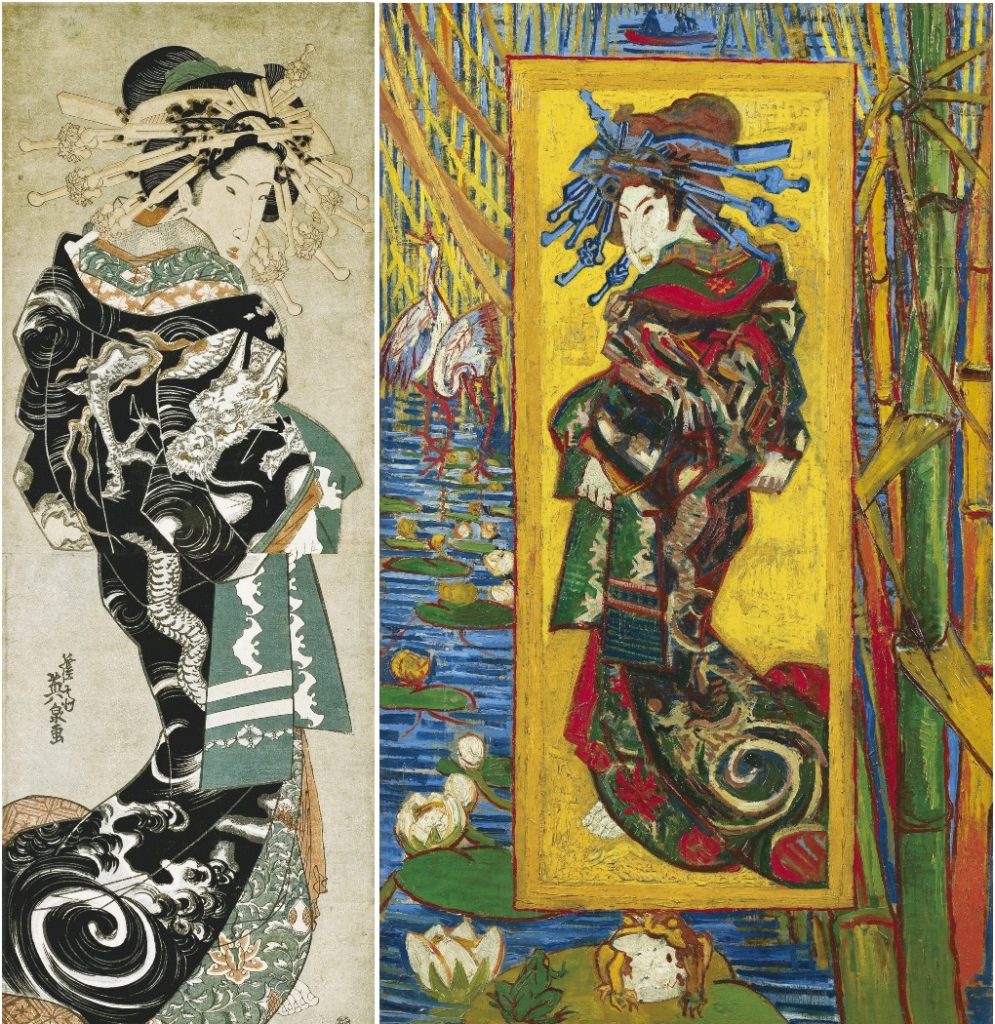
East Meets West 'Van Gogh & Japan' Exhibit until January 8 JAPAN Forward
Van Gogh Collects: Japanese Prints. Vincent van Gogh collected hundreds of Japanese prints. Now you too can gain the inspiration he found in the power and intense colours of Japanese art. All themes. About Van Gogh's collection. Read about the 'missing' prints.